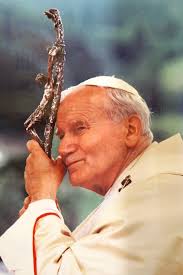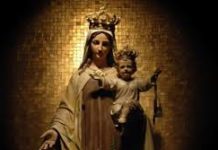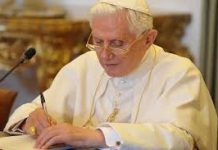In 1999 it was estimated that 24 million Americans—almost one in 10—do not admit allegiance to any particular faith denomination according to a four-year study of the religious orientation of adult residents of the United States conducted by Scripps Howard News Service and Ohio University. According to the Pew Research Center, between 2007 and 2015, the percentage of persons not affiliated with any religious denomination rose from 16-23 %. Of these unaffiliated, the percentage who believe in God fell from 70-61%.
If you are one of the many who have eschewed organized religion, it was most likely for one of several reasons—it was not part of your upbringing; church services are boring; your own inertia; you are a secular humanist and have no genuine conviction about the existence of a supreme being anyway. Alternatively, you believe in God, but have complete confidence in your own simple, honest, and direct path to the creator through an uncomplicated and, in your view, pristine set of beliefs.
Additional ammunition you use for opting out of “church in a building” is because of the hypocrisy and arrogance you have encountered among priests, bishops, ministers, rabbis, mullahs, and their seemingly brainwashed flocks. Furthermore, the horror of September 11, 2001 shrieks of yet another perpetration of man’s inhumanity to man in the name of religion and most organized religions seem to have been guilty at one time or another be they Catholic, Protestant, Jewish, Muslim, Sikh, or Hindu. What’s more, pedophile priests, womanizing evangelists, and bearded men in strange headgear who view women as inferiors and won’t eat pork turn you completely off. If that’s what church, synagogue, or mosque is today, you reason, you want no part of it.
You particularly pride yourself on your non-judgmental, inclusive, live-and-let-live outlook. After all, you are a decent sort of person, pray reasonably often, and involve yourself in a variety of personal and civic charitable activities when asked. That’s enough isn’t it?
Maybe not, if you are willing to take a hard look in the mirror. If your reflection shows you someone in an easy chair with a beer in one hand and TV remote in the other, selfish with his time, tight with a dollar, irritable in traffic, short-fused on the golf course, impatient in lines, or disgusted with panhandlers and everyone on welfare and you’ve been this way as long as you can remember, you will have to admit that, at least, you are not making much progress. There is some comfort in the fact that most of your friends are a lot like you. But it would be quite a stretch to blame your torpor as a human being on lack of membership in a particular faith tradition.
Even if belonging to some worshipping group could get your life moving again, how can you choose among thousands? If you are even willing to shop around, you must eventually come to some conclusion about this man, Jesus, just to narrow the field. There is no question that he is an historical figure even in the unlikely event that the New Testament is pure fantasy. He lived on this planet. His sentence for his teaching was a most ignominious type of capital punishment, crucifixion. Those are facts which exist outside of “sacred scripture.” Here it is of interest that the writings which Christians refer to as gospels depicting the life of Jesus were written in Hebrew about six years after Jesus’ crucifixion (Matthew), in either Latin or Greek about four years later (Mark), in Greek, 24 and 63 years after the death of Jesus (Luke and John, respectively). With the impressive ability that time has to erase memories, the congruities these four separate biographies possess are no less than astounding. Even if you are a professor of American history at Harvard University, what can you spontaneously recall, for example, about the lives of Abraham Lincoln or Robert E. Lee?
Similarly amazing is the impact that this one individual had on the human race after only three years of public life without the means of modern travel, cell phones, the internet, newspapers, radio, and television. Yet the world’s calendar somehow came to be based on the life of Jesus. What’s more, one in three of us six billion people on this planet profess to be his followers. His message of love of God, love of neighbor, and forgiveness rather than retribution seem hardly enough to have produced such fame. Surely there must be more to it.
C.S. Lewis, a famous Anglican Protestant and erstwhile atheist, in his Mere Christianity, reasoned with remarkable clarity that either Jesus was crazy, a terrible liar, or he was who he said he was. Ultimately he came to the conclusion that Jesus is the Messiah the Jewish people had been waiting for—and the Son of Almighty God.
If after reading Lewis or others you become convinced that Jesus and not Muhammed or Buddha is the answer or if you had already considered yourself a Christian, which form of Christian worship most reflects what Jesus intended for his followers? There are still more than 30,000 from which to choose. Maybe it’s even the form you now practice on your own minus a weekly haranguing sermon. But before arriving at that convenient conclusion, wouldn’t it be worthwhile to investigate how the apostles and their followers in early Christianity worshipped?
If you think this a reasonable approach, like it or not, you now must confront that paradigm of organized religions, the oldest Christian sect on the planet, the Catholic Church. What with its altars, statues, crucifixes, incense, rosaries, priests, brothers, nuns, bishops, cardinals, popes, confessionals, standing, sitting, and genuflecting, it is canon fodder for the unbeliever. On the other hand, this is the church of some famous Christians—Patrick, who converted the pagan Irish; Augustine, former reprobate and author of Confessions; Joan of Arc, heroine of the 100 Years War; Thomas More, chancellor under Henry VIII; Francis of Assisi, lover of poverty; and Thomas Aquinas. Aquinas is acknowledged even by opponents to have been one of the most brilliant theologians and greatest minds the world has ever known. Were these singular Catholics simply misguided and mistaken in their understanding of their founder’s master plan? Two of those mentioned and many others were martyred for their faith. How unfortunate to die for a Church whose doctrine is false!
Reformation Protestants actually witnessed or heard first-hand of real abuses which had crept into the church to which they belonged, but at least they understood the liturgy and were going to Mass on a regular basis. Reformers knew full well that their Church had been the standard bearer of Christianity for the previous 1500 years. Luther and Knox were Catholic priests! Knox, partly through the influence of Calvin, developed major doctrinal issues with the Church early on, Luther only gradually. It is unfortunate that some valid criticisms fell upon deaf papal ears and their intransigence on certain central doctrines resulted in excommunications from the Church. The understandable reaction to such a sentence might be bitter vitriol against Rome. Thus abruptly disenfranchised, a reformer might vindictively determine to separate himself from any semblance of priests and papism. Could it be that in blind rage, the baby was thrown out with the bathwater attempting to reform and purify the Church?
In any event, as a consequence of the Reformation and the diluting effect of 500 years and the now thousands of Protestant denominations, modern-day Protestant Christians know next to nothing about the Mass in which their forefathers had once been active participants and today dismiss it out-of-hand as preposterous, meaningless ceremony. These are genuinely good Christian people who are taught to be skeptical about anything they can’t specifically document in sacred scripture (sola scriptura, ie scripture as the only source of Christian truth). Indeed, intensive study of the bible as an encounter with God’s word and therefore with God himself is more than encouraged; it is expected. A typical day in the life of a Protestant Christian begins with individual reading of some passages from scripture, reflection, and prayer seeking to attain a more “personal relationship with their savior.” A typical week includes a much anticipated, stirring sermon from the pulpit and some resounding old-fashioned hymns on Sundays and Wednesday nights, and a bible-study fellowship involving just a few or hundreds depending on the church. These activities provide the fuel for the zealous to involve themselves in wholesome individual or family projects, charitable activities, and evangelization to “spread the good news” around the globe. In the view of most Protestants, this is Christianity distilled to its essence. Complicated, repetitious ceremonies involving the offering of bread and wine to God the Father like the Mass seem foreign to these good people and certainly not needed for worship. If this was ever part of their heritage, some reason, it is well that it disappeared from most Protestant services in the 16th Century. Good riddance! All that is needed is God’s word. However, most would squirm slightly as they consider the irony that nowhere in the entire bible is it stated that scripture is the only source of truth about God. Indeed, St. Paul says quite the opposite: “So then, brethren, stand firm and hold to the traditions which you were taught by us, either by word of mouth or by letter” (2 Thess. 2:15). Thus, according to the bible itself, the notion of sola scriptura should be heresy.
But don’t Protestant Christians have a point about all the altars and candles, priestly vestments, and general pomp and circumstance surrounding the Mass? Isn’t all that a little much? Not according to Scott Hahn, a former Presbyterian pastor in his book, The Lamb’s Supper. In this work, Hahn reminds the reader that Jewish worship involved the offering of sacrifice to God as an acknowledgment of his sovereignty over all. This usually involved the burning of domestic animals or sacrificial wine on an altar. However, two sacrifices in Genesis deserve reflection–first, the willingness of Abraham to sacrifice his only son, Isaac (Genesis 22). This is seen by many scripture scholars to foreshadow the offering of Jesus by his Heavenly Father (John 3:16). Of note next is the first priest mentioned in the bible, a man named Melchizedek (Genesis 14) who was also a king. This odd combination of priest and king would later be applied to Jesus. Genesis describes Melchizedek as king of Salem, a land that would later become (Jeru-) Salem meaning city of peace. Jesus would arise one day as high priest and king of the heavenly Jerusalem and again like Melchizedek, “Prince of Peace.” Melchizedek’s sacrifice was extraordinary in that it involved no animals. He offered bread and wine, as Jesus would at the Last Supper when he took bread, gave it to his disciples and stated quite categorically, “Take and eat; this is my body”… Then he took the cup filled with wine and stated again, “Drink from it all of you; for this is my blood of the covenant which will be shed on behalf of many for the forgiveness of sins.”(Mt 26:26-28) “Do this in memory of me.” (Lk 22: 19) Strangely and quite unpredictably, a literal interpretation of these particular words is abhorrent to even the most scripturally fundamentalist Protestant denominations.
However, the Catholic Church holds and teaches that the ceremony conducted by Jesus at the final Passover of his life was not merely symbolic. A transubstantiation or change of substance had occurred. The unleavened bread and wine had become his actual body and blood (the “Bread of Life”—Jn 6:35) which he gave to them to eat. Jesus then is considered by Catholics to have been the celebrant at the first Mass and ordered his disciples and their disciples’ disciples to repeat this ceremony. Thus, on the four corners of the globe virtually all Catholic priests have been pronouncing the words of Jesus over the bread and wine every day at Mass for nigh onto 20 centuries fully convinced that the bread and wine are no longer mere bread and wine, but Jesus himself under the form of bread and wine. An analogy of this change of substance would be that of an American flag, originally just fabric, but once the stars and stripes have been added, never again simply fabric, but always our national ensign. The worthy reception of this seder meal, according to Catholic doctrine is then a sacramental encounter with the Messiah of 2000 years ago. For those who could not live in his time, Jesus considerately left them a way of being able to tangibly experience him in a grace-giving event. His disciples received his grace to live holy lives directly in their daily personal contact with him. Catholics who understand their faith believe that, like the twelve, they too can experience that “personal encounter” with Jesus today and every day of the year at Mass if they so desire.
Was this function of “priests of the order of Melchizedek” (Hebrews 7:17) unwittingly “thrown out with the bathwater” by Renaissance Protestants in their all-too-human rage against a Church which truly needed some cleansing and a return to basics, but whose all-too-proud hierarchy wouldn’t listen?
You may view consuming a morsel of unleavened bread and sipping wine like this in a ceremony such as the Mass as ludicrous and certainly unnecessary for worship. And you would be right– unless Jesus is the Son of God and literally meant what he said. Could these very ordinary works of human hands become the true gift of himself to those of us who were to come later in time? If so, how could any Christian snub such a gift? How could a true follower of Jesus stay away? The earliest Christians certainly took it very seriously [1 Corinthians 11: 29]. By and large, Protestant traditions have chosen not to. One wonders whether this choice has its roots in hurt, anger, hatred, and vindictiveness left over from the 16th Century rather than a genuine desire to purify and simplify the worship of God. If Protestants were at all willing to take a critical look at church history, they might be chagrined to find that the early Christian church did not look very “Protestant”. Thus, if by some quirk, transubstantiation is a reality, those Christians who choose not to participate at Mass and go it on their own are certainly not evil, but they might be missing out on daily opportunities to have the most personal of “personal relationships with their savior.”
If Catholic liturgy is analyzed as revolving around this belief in the Real Presence of Jesus himself on the altar at each Mass, the pomp and circumstance, the glorious music of Bach, Brahms, Beethoven, and Mozart, the priestly vestments which reflect Jewish high priests of old, the incense at high Masses, the bowing and genuflecting before the Creator Of The Universe are quite appropriate. Moreover, its basis in scripture is rock solid and very old harkening back to an ancient Jewish heritage–a heritage that Protestants have all but abandoned. If the passages of scripture from his last supper are to be taken quite literally, as Catholics believe, the Mass and the celebration of the Eucharist, as it is called, have to be man’s highest form of worshiping God, period.
On the other hand, if you are certain that Jesus didn’t mean precisely what he said, or you regard the concept of the Real Presence as absurd, why be a Catholic? And if you are already a nominal Catholic and don’t believe or understand the doctrine of transubstantiation, get out!—for the Eucharist is the linchpin of the Catholic faith and a Protestant tradition will more than suit your needs if you want to belong to a Christian church. One only has to look at Christians like Albert Schweitzer, Florence Nightingale, Billy Sunday, William Jennings Bryan, Helen Keller, C.S. Lewis, Billy Graham, Martin Luther King, Jerry Falwell, and many others to realize that the Catholic Church certainly does not corner the market on genuine followers of Jesus.
And now back to you who have not chosen to belong to any formal believing body. If your unorganized approach to religion is not making you more joyful, more grateful, longer-fused, more generous with your time and money, and giving your life more meaning, it may be time to “regroup”. If it is not generally narrowing the gap between you and Almighty God as the years go by, maybe you, too, are missing out of some grace-giving events available in the congregation nearest you. The words of the Lord’s Prayer indicate quite clearly that worship is not solely to be an individual endeavor. It is not “you and I against the world, Lord.” The words are not “My Father who art in heaven…Give me my daily bread and forgive me my trespasses”. The rest of us belong in there with you as the community of believers. Many of us are part of an organized religion and worship together in a building or even a tent somewhere. So maybe, just maybe, you ought to come inside and get out of the rain.











